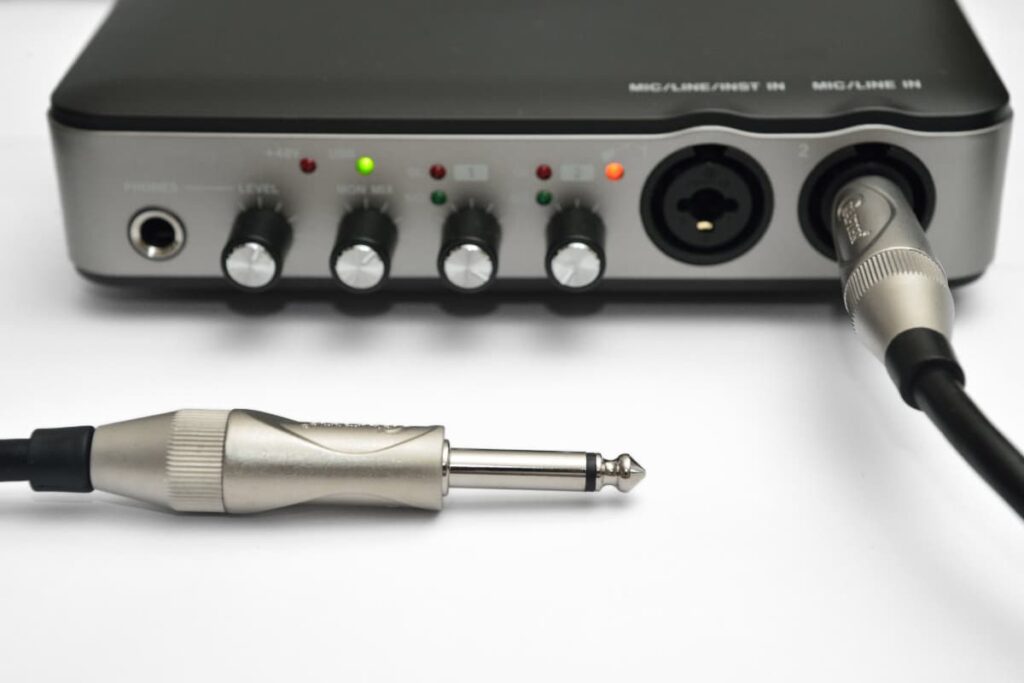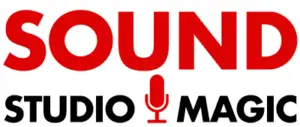Prices of audio interfaces can range from absurdly cheap to mind-numbingly expensive. This trait makes it difficult to decide what to go for when buying one.
There is a general idea that more expensive is always better, and this might lead you to think that the more expensive an audio interface is, the better it will sound.
On average, expensive audio interfaces tend to sound better than cheap ones. They will also allow you to create a better mix as it will be easier to spot flaws on recordings. The final product made with a costly audio interface will usually sound better.
Keep reading to find out why more costly audio interfaces sound better and if more expensive is the best choice. By the end of the article, you’ll be able to decide what kind of audio interface you need.

Table of Contents
- Do More Expensive Audio Interfaces Sound Better?
- Do You Really Need an Expensive Audio Interface?
- When Do You Need an Expensive Audio Interface?
- Final Thoughts on Expensive Audio Interfaces
Do More Expensive Audio Interfaces Sound Better?
Expensive audio interfaces typically sound better because they have better components, such as preamps and converters, and they create less noise. High-quality audio interfaces also offer better sample rates and more durability.
Typically, when an audio interface is more expensive, it implies that it is made of better components and materials and that more time and effort were invested in its design and production.
All of this will positively influence the final product created with the audio interface.
Of course, some products are expensive for no good reason, and there are inexpensive audio interfaces that do a magnificent job. On average, an expensive audio interface will do a better job.
Sound Quality
Let’s examine the factors that make audio interfaces more expensive and see how they influence your sound quality.
Better Preamps
An audio interface with a better preamp will be better at elevating the audio signals from the microphone or instrument to line level. This means that the amplified signal that you get and mix in your DAW (Digital Audio Workstation) will be clearer, stronger, and less muddy, all while staying free of noise.
Better DA and AD Converters
Quality converters also change your sound for the better.
The better the converters, the less information loss there is, which reduces hissing and other noises. These random noises are often the bane of a home studio and may cause a lot of frustration.
While there are other ways to eliminate this problem, ensuring that the signal is high-quality from the start will spare you a lot of trouble.
Sample Rates and Bit Depth
Costlier audio interfaces will also let you work with higher sample rates and bit depth.
Sample rate and bit depth determine the fidelity of the sound, so you want them to be high.
Cheap and expensive interfaces
A cheap audio interface will let you work at a bit depth of 16 bits. This is fine for most purposes but cheaper interfaces can sometimes get noisy. Unlike a budget interface, a higher-quality audio interface will let you work with 24 bits, allowing you to process your recordings more smoothly and reduce noise.
Do You Really Need an Expensive Audio Interface?
You don’t necessarily need an expensive audio interface, especially in a home studio. In a home studio, it is best to take the middle ground and aim for a good quality-to-price ratio.
While expensive interfaces tend to sound better and overall perform better, you should also consider what better means for you personally.
Just because there is a $500 audio interface that can do a magnificent job, it doesn’t mean that you need it.
If you’re just starting out in home recording music, recording vocals, recording instruments, or if you’re simply a hobbyist, chances are that an expensive interface won’t do much for you. You might not even hear the difference as a beginner, while a hobbyist probably doesn’t need all the features an expensive audio interface may bring.
As a beginner, you’re better off honing your skills and learning about audio production as much as possible.
Not even the most expensive interface will mean much if you lack skills.
Not even the best audio interfaces will mean much if you lack skills.
On the other hand, as a hobbyist, even an experienced one, you probably do not need all the features of pricey audio interfaces.
You probably want to make recordings for fun, and professional-tier gear simply won’t do much for you.
This doesn’t mean that you need to settle for a bad audio interface. The wisest thing is to find a sweet spot between price and quality. Plenty of high-quality mid-range audio interfaces will sound great without costing you an arm and a leg.
Chances are they will fulfill all your recording needs.
When Do You Need an Expensive Audio Interface?
You might need an expensive audio interface if you’re thinking about going pro or if you need to record your band much faster. In other cases, it’s best to opt for a more affordable option.
If, for example, you’re becoming really good at audio engineering and think you can elevate your game and become a pro, you’ll likely need a better audio interface.
This usually means you’ll have to buy a more expensive one.
Of course, you shouldn’t buy the most expensive audio interface you can find, as you’ll also have to invest in other things, but you’ll need to shell out some money.
On the other hand, you might be playing in a band, and recording each instrument individually might become a drag. Or perhaps you have a chance to become a serious band, and you need to record something with high fidelity. Maybe you want to do both at the same time with an audio interface.
If you’re in that situation, upgrading your audio interface might be a good idea. A more expensive audio interface has more inputs, which means that you’ll be able to record more instruments at once, greatly speeding up the process.
They will also allow you to create better records and leave a better impression on your audience and record companies.
Final Thoughts on Expensive Audio Interfaces
Expensive audio interfaces generally sound better than a cheap audio interface.
This doesn’t mean that a cheaper audio interface will always be terrible and that you need a more expensive audio interface. For beginners and hobbyists, t’s best to find a middle ground between price and quality when it comes to an audio interface.
- Review of the ALABS IRON MINI-WL: A Powerhouse Wireless Microphone - October 4, 2023
- What is a Saturator in Music Production: A Brief Explanation - May 11, 2023
- What Are Rotary DJ Mixers? An Overview - May 11, 2023
SoundStudiomagic.com is a participant in the Amazon Services LLC Associates Program, an affiliate advertising program designed to provide a means for sites to earn advertising fees by advertising and linking to Amazon.com. We also participate in other affiliate programs which compensate us for referring traffic.

